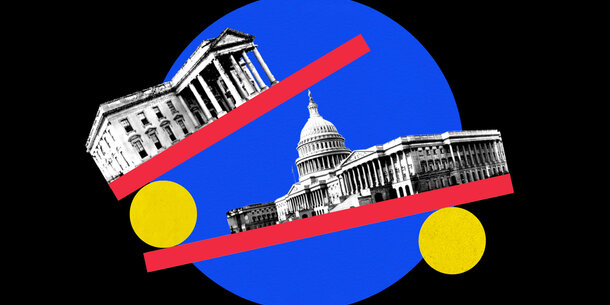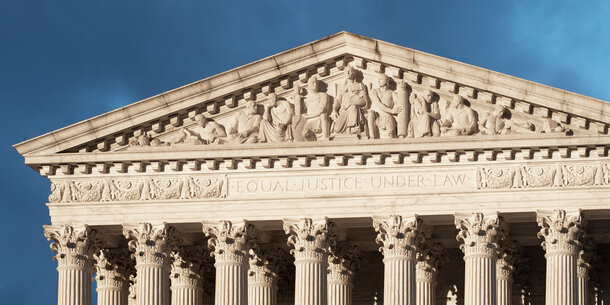When President Biden delivers his State of the Union Address Tuesday, he will face off against a House of Representatives now controlled by Republicans. Presidents often use these speeches to fence with legislative foes. Biden must decide whether he will do the same regarding another hostile branch: the U.S. Supreme Court.
I was chief speechwriter for President Bill Clinton for four of these speeches. I know how much political calculation goes into every word. And as a member of President Biden’s Commission on the Supreme Court of the United States, I know how high the stakes are.
Since Biden’s last address, the supermajority of six conservative justices have thrust themselves into the center of American politics. The Court overturned Roe v. Wade, repealing the constitutional protection for reproductive rights after a half century and putting at risk many other privacy protections. The justices radically loosened gun laws, decreeing that only gun safety rules rooted in “history and tradition” would pass muster. They hobbled regulatory agencies and their ability to protect the environment. The justices crammed decades of conservative social policy into the last three days of its term in June.
So it would be entirely appropriate for Biden to speak about the Court’s lurch to the right. The address is actually authorized in the Constitution, which requires the president to report to Congress on the state of the union “from time to time.” In fact, in recognition of this, most of the justices sit in the front row, wearing judicial robes.
In this speech, Biden could address not just abortion rights but rulings to come. He could take on the extreme “originalism” now used by the Court to justify its decisions. He could call for term limits, popular with conservatives as well as progressives, or a binding ethics code. He can prepare listeners for the next wave of big rulings, when the justices will likely undo affirmative action in college admissions, a social policy ruling with massive implications.
Other presidents have directly addressed the judicial branch when it oversteps. In an era before presidents delivered these speeches in person, Abraham Lincoln directly took on the Dred Scott opinion in his first inaugural. If government policy is to be “irrevocably fixed by decisions of the Supreme Court,” he declared, “the people will have ceased to be their own rulers, having to that extent practically resigned their Government into the hands of that eminent tribunal.” Chief Justice Roger Taney then swore him in, perhaps swearing to himself as he did so.
Theodore Roosevelt’s 1906 Annual Message came as the justices were busy striking down worker protections in decisions such as Lochner v. New York. He explained at length why it was appropriate to take on the Court. “The best judges have ever been foremost to disclaim any immunity from criticism,” Roosevelt said. He even quoted the man who would be his successor, William Howard Taft, who said, “The opportunity freely and publicly to criticize judicial action is of vastly more importance to the body politic than the immunity of courts and judges from unjust aspersions and attack.”
Indeed, as vice president Biden sat behind Barack Obama when he took on the Supreme Court directly just days after Citizens United in 2010. “With all due deference to separation of powers,” Obama scolded, the decision “will open the floodgates for special interests — including foreign corporations — to spend without limit in our elections.” As lawmakers applauded, Justice Samuel Alito irritably shook his head. Able lip readers noted he was saying, “Not true.”
Surely today’s activist and ideological Court will have a massive impact on the country’s politics. Public anger over Dobbs already helped Democrats win governorships and statehouses, grow their Senate majority, and limit House losses.
Biden takes the courts seriously. He nominated Ketanji Brown Jackson, the first Black woman on the Court, fulfilling a campaign pledge. He won confirmation of 97 federal judges, a record modern pace. As a former longtime Senate Judiciary Committee chair, he certainly understands the stakes. But he has not used the bully pulpit to frame the Court’s new radicalism. He appointed a commission to study the Supreme Court, but he never publicly commented on its report.
Yes, the direction of the Court would be an unusual topic. When I worked with President Clinton on four addresses, we strategized endlessly about how to joust with conservative lawmakers. In all those times sitting in the Oval Office, I cannot recall a time when we contemplated discussing the Court. But this is a different moment. Alexander Hamilton called the courts “the least dangerous” branch of government. These days, though, the Supreme Court is the most active and effective conservative political operation in Washington. In this most high-profile setting of his term, President Biden should make that clear.



